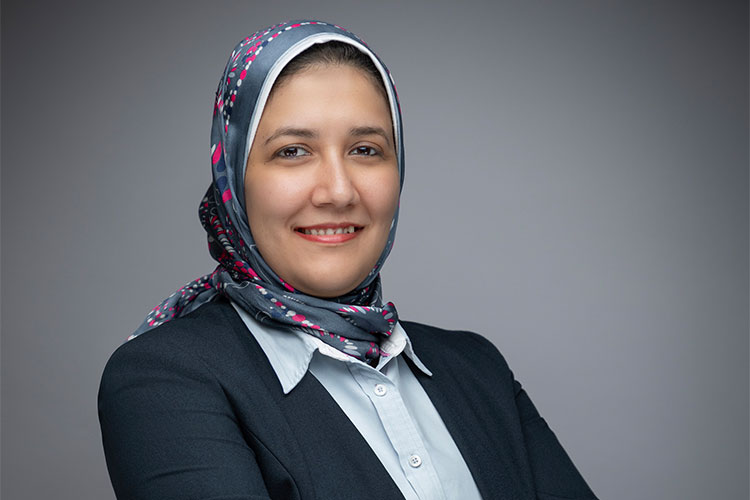

Rana El-Dabaa, Assistant Professor of Architecture at Heriot-Watt University Dubai, pens her thoughts on the role played by women in shaping the sector
March 08, 2024 | Rana El-Dabaa | UAE | Facilities Management

When women are given more opportunities to lead, it yields positive outcomes for all involved. Numerous studies spanning decades demonstrate that female leaders contribute to heightened productivity, foster better collaboration, instill greater organisational commitment, and promote fairness. Despite these advantages, only a mere 10% of Fortune 500 companies are currently helmed by women. What distinguishes the built environment sector from others is the notable presence of accomplished women in both leadership and operational roles within organisations. The built environment includes the physical infrastructure and spaces where communities live, work, and play, making it a critical aspect of societal development and sustainability. Recent years have seen women take the lead in steering companies, leading initiatives, driving innovation, and effecting change within this industry. While many attribute female leadership in this sector to adaptability and heightened social engagement, they often underestimate the breadth of insights women bring to various discussions. Women bring with them a strong determination to excel despite challenges, serving as inspirations to those around them.
Often, stereotypes and biases deter women from pursuing careers in the built environment. However, initiatives aimed at challenging these perceptions have emerged. For instance, in the UAE, where organisations led by women, such as the Ministry of Climate Change and Environment and Dubai Businesswomen Council, are fostering collaboration and forming partnerships across the public and private sectors, as well as academia. They advocate for gender equality by providing mentorship, networking opportunities, and educational resources. By showcasing successful women in these fields, they debunk stereotypes and inspire young girls to envision themselves as future leaders in the built environment.
With a female literacy rate exceeding 95% and a growing number of women completing tertiary education, the UAE is cultivating a robust workforce of ambitious young women. Women entrepreneurs constitute over 10% of the private sector in the UAE, and Emirati women hold 15% of board positions across global industries. By 2020, the UAE had reduced the overall gender gap by more than 65%, as reported by the World Economic Forum's Global Gender Gap Report. Two-thirds of public sector positions in the UAE are held by women, with 30% of these roles being in leadership positions and 15% in technical and academic capacities
The UAE government and various organisations have introduced initiatives aimed at motivating students to pursue STEM fields. For instance, the Emirates Foundation hosts ‘Think Science’, an annual programme tailored for youth aged 15 to 35, focusing on enhancing their understanding of science, technology, and innovation. Although these programmes cater to both genders, they have significantly contributed to encouraging women to assume leadership roles in STEM and entrepreneurship. Data indicates that a higher proportion of women in the UAE complete secondary education and enroll in tertiary and postgraduate institutions compared to men. Specifically, women constitute 41% of STEM graduates from government universities in the country. Furthermore, the female literacy rate in the UAE stands impressively high at 95.8%. Many of these women in STEM fields play integral roles in research and scientific endeavours within the UAE. A recent UNESCO study underscores that a majority (approximately 61%) of STEM graduates in the UAE are women, in contrast to 57% from other Arab countries. By instilling confidence and skills in STEM subjects from an early age, these initiatives equip girls with the tools needed to excel in professions like architecture, civil engineering, and urban planning.
Furthermore, mentorship programmes provide invaluable support and guidance to aspiring women professionals in the built environment. Female professionals serve as mentors, offering career advice, sharing experiences, and advancing personal growth. Additionally, exposure to successful women in leadership positions serves as inspiration and motivation for younger generations. Industry-specific events, often organised in collaboration with academic institutions, feature keynote speakers and panel discussions led by influential women. These platforms offer insights into the career trajectories of successful female leaders, highlighting their achievements and strategies for overcoming obstacles. By actively involving academia in mentorship initiatives and providing opportunities for exposure to female role models, the built environment sector in the UAE can further empower women, encourage their participation, and pave the way for a more inclusive and diverse industry landscape.
The industry is progressively acknowledging the importance of diverse viewpoints, cultivating an atmosphere of inclusivity and adaptability. With more women ascending to leadership roles, the built environment sector stands poised for a significant transformation, characterised by increased dynamism, innovation, and resilience. The prospects are optimistic, with women accepting a key role in shaping the industry. Their contributions not only enhance the sector's vitality but also underscore its commitment to diversity and excellence, ensuring a brighter future for all stakeholders involved.